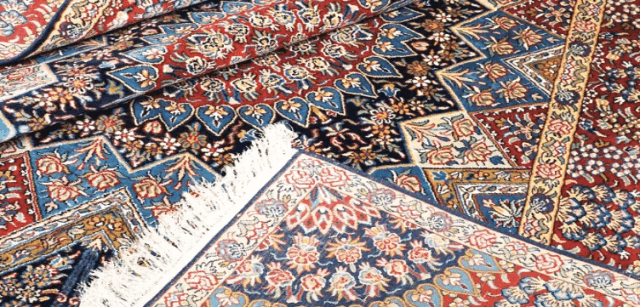Srinagar, Sep 06: The United States’ decision to impose 50 per cent tariffs on Indian exports has left Kashmir’s famed handicrafts sector reeling, with traders warning of mounting job cuts and artisans fearing a worsening livelihood crisis.
The tariffs, in effect since August 27, have dealt a severe blow to an industry that sustains over four lakh artisans across the Valley. With exports to the US now nearly unviable, traders are stuck with heavy stocks of unsold inventory and have begun cutting back on artisan employment, raising fears of a deepening livelihood crisis.
Pashmina blankets, shawls, embroidered furnishings and carpet rugs, traditionally shipped to the US for autumn and winter sales, have been hit hardest by the new trade barriers. Exporters said consignments meant for the current season could not be dispatched after the tariffs came into effect, resulting in the loss of an entire business cycle. Since many of these products see greater demand in the colder months, the timing of the disruption has magnified the financial losses.
The United States has long been a high-end market for Kashmiri handicrafts, accounting for nearly 30 per cent of Jammu and Kashmir’s total exports, which were valued at Rs 1,116 crore in 2023–24. For several exporters, the American market contributed the bulk of their annual business. With orders now stalled, the sector is struggling to identify alternative destinations, as few international markets have comparable demand for luxury products like silk carpets and hand-embroidered shawls.
The crisis has compounded the difficulties of an industry still recovering from the COVID-19 downturn. Dealers who had travelled to trade exhibitions in Delhi in search of new contracts said that interest from American buyers has dried up, leaving them with rising inventories and no immediate buyers. Many warn that prolonged stagnation could result not only in more job losses but also in the erosion of Kashmir’s craft heritage, which artisans have preserved for centuries despite economic hardships.
Traders across Srinagar and other centres reported a sharp fall in new orders in recent months. Carpet makers, paper-mâché craftsmen and chain-stitch embroiderers are among those worst affected, with many workshops running far below capacity. The slowdown has triggered calls for export incentives, with industry representatives urging the government to consider interest waivers, reductions in GST and special relief measures to help the sector weather the tariff shock.
With the festival season in the West approaching and no sign of the situation improving, the Kashmiri handicrafts trade faces one of its most difficult periods in recent memory. Unless alternative markets are found or policy interventions provide immediate support, exporters fear the losses could permanently reshape a sector that has long been both an economic lifeline and a cultural emblem of the Valley.








